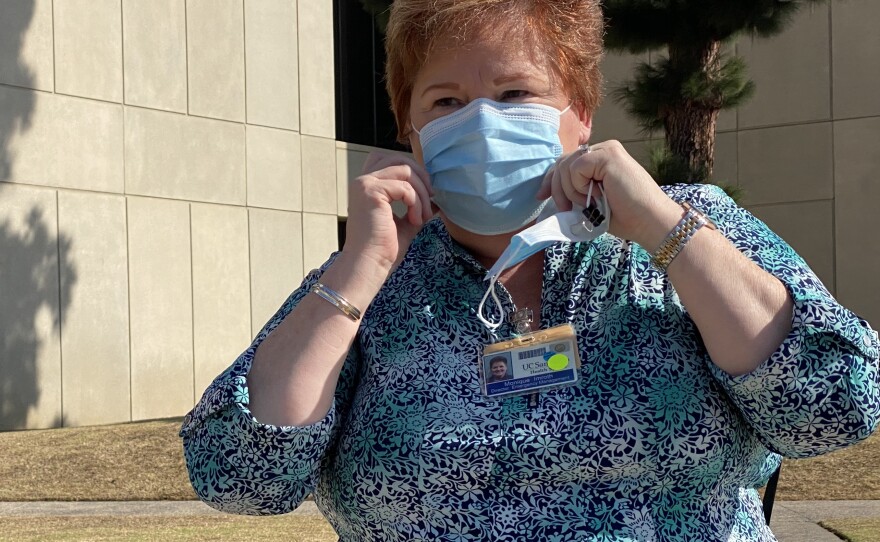The job of Monique Imroth is to always be ready for worst-case scenarios, but the director of emergency management at UC San Diego Health said she hopes she’s never right.
"No one wishes they were wrong more often than me, but that said, the leaders of this organization depend on me and my team to say, 'We think this could be a problem,'" Imroth said.
Imroth, also co-chair of the San Diego Healthcare Disaster Coalition, said the region's hospitals plan year-round for events that could bring a mass of patients, like a wildfire or COVID-19 surge, and this year that includes the presidential election. Cities from coast to coast are preparing for protests that could turn violent amid the political divisions.
Imroth said there have already been tense moments — a bus for Joe Biden's campaign, which wasn't carrying the Democratic presidential candidate or running mate Kamala Harris, was surrounded by supporters of President Donald Trump in Texas.
Imroth said she looks at occurrences elsewhere to inform preparations in San Diego County.
"We look at that as a collective and say what is the potential that that could happen here, and then we plan for that," she said.
That includes disruptions to traffic patterns. In the past, local demonstrators have blocked highways, so Imroth said they're prepared to re-route emergency vehicles or employees coming to work. She said providers are also on alert if protests lead to injuries caused either by altercations or police response, such as the use of pepper spray.
"You could have inhalation challenges, you could have panic that gets caused because that gets deployed or there's violence that occurs — there could be crush injuries all the way up to knifing or gunshots that could induce trauma, so we're prepared for all of those challenges," she said.
Imroth said in response to a mass event hospitals may increase staff, discharge stable patients to create more bed space or activate emergency outdoor tents for triage.
A Scripps Health spokeswoman said officials there are also taking precautions but the region is well-equipped to handle a potential major emergency.
"We have a close working relationship with law enforcement, and while we are increasing our security staffing, there are no specific threats. Regionwide, the San Diego trauma system is very well-coordinated. We can distribute multi- or mass casualties throughout the six adult trauma hospitals, and can call in additional staff if needed very quickly," Janice Collins said in an email.
UCSD Health's Imroth said routine regionwide planning helps ensure hospitals can balance demands from a large event with the rest of the community’s needs.
"We have each other on a group text and we're texting each other in the community to see what's going on, what support is needed, and we help each other support and plan and prepare because we all need to be able to lift our weight during a disaster so that everybody's patients can get taken care of," she said.






